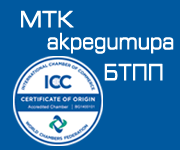The European car industry employs 2.3 million workers directly and another 10 million indirectly. The sector is highly innovative and accounts for 20% of industrial research funding in Europe. But the automotive sector is facing numerous challenges, four of them are critical for the future of Europe’s car industry:
Overhaul of the existing supply and value chain: Inevitable structural changes will disrupt the entire value chain, as the traditional automotive manufacturing will be more influenced by IT and other industries. The share of electronic components as a percentage of the total costs of a vehicle has doubled from 20 to 40% within 10 years. New players from outside the sector are entering the automotive industry – mobility providers, IT companies, battery producers, telecom operators, Original Equipment Manufacturers –OEM, etc. This will lead to new business models.
Maintaining decisions centres, R&D, and high-end suppliers inside Europe will be critical for the future of the industry. Therefore it is crucial to promote innovation and technological development and encourage SMEs to enter the digital world and seek niches in IT, digitalisation and smart system sectors. The necessary transition to a circular economy will provide new economic opportunities for the automotive sector.
Decarbonisation and electrification: The transport sector in the European Union accounts for 23% of CO2 emissions - 75% of which are released by road transport. These figures call for ambitious regulations aiming for a carbon-free environment and higher safety standards, which will increase costs.
It is important to exploit synergies between electrification and energy policy, e.g. by connecting battery-fuel stations with green energy sources including privately produced solar energy for the first stage of automotive electrification infrastructure.
Autonomous driving: It is crucial to launch the political debate on automated and connected cars now, together with the related discussion on the rise of data flows, data protection, data ownership and internet safety, and put in place a regulatory framework for autonomous driving (the Vienna Convention on road traffic still places responsibility on the driver). Investments in road infrastructure in order to live up with the new technological developments would complete the legal framework.
Connected cars: More and more value added will be created in car sharing, mobility services and digital platforms for e-commerce. The growth in revenues from mobility services, such as navigation services, entertainment, social media, integration of mobile information, etc. will supplement the growth of revenue from vehicle sales, which is slowing down.
The job challenge – The need for social dialogue and for education to keep abreast with change
The digitalisation of the workplace has an impact on jobs and skills. Social dialogue between employers and trade unions is required to ensure a smooth social transition for the automotive sector. Europe also needs to invest massively in training and education.
We expect the GEAR 2030 High Level Groups and project teams to develop an ambitious long-term industrial policy roadmap which should represent a shared vision of all stakeholders about the automotive industry in order to address the qualitative and quantitative impact on employment and environment. A forward-looking policy approach and Europe-wide coordination and cooperation also with regard to education and the New Skills agenda will help the sector adapt quickly to changing conditions.
Georgi Stoev, EESC Member, Group I (employers)
Monika Sitarová Hrušecká, Delegate of the EESC Consultative Commission on Industrial Change

 1 USD =
1 USD =  1 GBP =
1 GBP =  1 CHF =
1 CHF =  ISO 9001:2015
ISO 9001:2015













